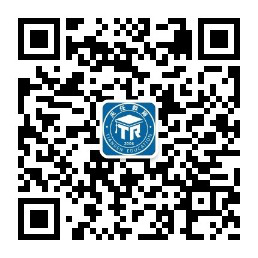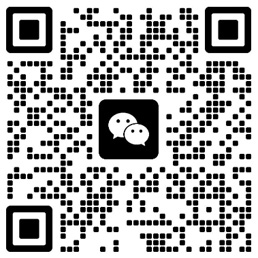(本文选自《经济学人》20200222期)
背景介绍:
新加坡是一个具有多元文化的移民国家,也是世界上拥有华人最多的国家之一。新加坡拥有4中官方语言,即英语、汉语普通话、马来语和泰米尔语。其中以英语和汉语普通话使用最为广泛。而曾经作为大多数新加坡华人母语的方言如今日渐式微。
Singapore has almost wiped out its mother tongues
新加坡母语几乎走向了消亡
Elderly speakers of Cantonese, Hakka and Hokkien sometimes cannot talk to their own grandchildren
讲粤语、客家话和闽南语的老人有时难以和自己的子孙交流
When Sandy, a young Chinese Singaporean, learned that her grandmother was terminally ill, she signed up for a workshop in the Hokkien language run by LearnDialect.sg, a charity founded to help Singaporeans communicate with the city-state’s older Chinese residents—including within their own families.
当年轻的新加坡华裔桑迪得知祖母病入膏肓时,她报名参加了一个由“学习方言”开办的闽南语研习班,“学习方言”是一家旨在帮助新加坡人与这个城邦国家中的中国老人(包括他们的家人)交流沟通的慈善机构。
Sandy is fluent in English and Mandarin, the official “mother tongue” of Chinese Singaporeans. Her grandmother spoke little of either. Before she died, Sandy thrilled her by asking in Hokkien, “What was your childhood like?” She was even able to understand some of the answer.
桑迪能够说一口流利的英语和普通话,普通话是新加坡华人的官方“母语”。而她的祖母却很少说英语和普通话。在祖母临死前,桑迪用闽南语问她:“你的童年是什么样子的?”她甚至能够听懂祖母的一些回答。
Their language barrier was the product of decades of linguistic engineering. English has been the language of instruction in nearly all schools since 1987, to reinforce Singapore’s global competitive edge. But, depending on ethnicity, pupils study a second language—typically Mandarin, Malay or Tamil.
她们的语言障碍是几十年语言工程的产物。自1987年以来,为了增强新加坡的全球竞争优势,几乎所有学校都将英语作为教学语言。但是,根据种族差异,学生们还会学习第二语言——通常是普通话、马来语或泰米尔语。
These are intended, as Lisa Lim of the University of Sydney puts it, to add “cultural ballast” vis-a-vis English. In the case of Mandarin, its acquisition has been reinforced by the government’s annual “Speak Mandarin Campaign”, started in 1979.
正如悉尼大学的莉萨·林所说,这些举措都是为了相对英语增添“文化砝码”。就普通话而言,政府于1979年开始的年度“讲普通话运动”强化了新加坡人对普通话的习得。
Mandarin is a standardised version of the language spoken by the people of the vast plains of northern China. Yet hardly any of the Chinese from whom Singaporeans are descended hailed from there. They came instead from the southern provinces of Fujian, Guangdong and Hainan, and so spoke different languages: Hokkien, Cantonese and Hakka, along with two Hokkien-related tongues, Teochew and Hainanese.
普通话是中国北方广阔平原上的人们所使用的标准语言。然而,新加坡华人几乎没有来自中国北方的。他们大都来自中国南方的福建、广东和海南,因而说的是不同于普通话的语言:闽南语、粤语和客家话,以及两种与闽南语相关的语言——潮州话和海南话。
The Speak Mandarin Campaign sought to destroy Chinese Singaporeans’ real mother tongues, first by demeaning them as provincial “dialects” of Mandarin when they are in fact mutually unintelligible languages as different as English, German and Danish.
“讲普通话运动”试图摧毁新加坡华人真正的母语,首先是将他们所讲的汉语贬低为“地方方言”,而实际上这些方言是类似于英语、德语和丹麦语之间差异的彼此无法理解的语言。
Lee Kuan Yew, Singapore’s founding father, who started learning Chinese in his 30s, promoted the now discredited notion that humans have a tightly limited capacity for language: Hokkien and all the rest undermined the official bilingualism by hogging chunks of children’s memories.
新加坡国父李光耀在30多岁时开始学习中文,他宣扬了一种如今看来不足信的观点,即人类的语言能力非常有限:闽南语和其他所有方言会占据孩子们的大量记忆,从而会对官方的双语制造成影响。
Further, the great tidier disliked the diversity embodied in these languages and wanted to forge a single Chinese identity—reason enough to foist on Chinese Singaporeans an alien language. Lee also thought that China’s opening promised riches to those who could speak its official language.
此外,这位有着洁癖的伟人不喜欢这些语言所体现的多样性,他想打造一种单一的华人身份,这个理由足以促使他将一种陌生的语言强加给新加坡华人。李光耀还认为,中国的开放会给那些会讲普通话的人带来财富。
So dialects were disparaged. In the early 1980s television and radio programming in these languages all but disappeared, cutting many people adrift. “To speak dialect with your child,” the government warned, “is to ruin his future.”
因此,方言受到了打压。在20世纪80年代早期,讲这些方言的电视和广播节目几乎都消失了,这让许多人感到无所适从。政府还警告称:“和你的孩子讲方言会毁掉他的未来。”
By the campaign’s own yardsticks, the success is striking. The use of Chinese vernaculars at home has collapsed, from 76% of Chinese households in 1980 to 16% in 2015. Over the same period, the use of Mandarin rose, from 13% of Chinese households to 46%.
就这项运动本身来看,这无疑是非常成 功的。华人家庭讲汉语方言的比例从1980年的76%下降到了2015年的16%,已经有了大幅下降。而讲普通话家庭的比例同期从13%上升到了46%。
But the linguistic engineering has had an unintended consequence: the use of English is now increasing faster, especially among younger families: over 70% of households with children at primary school use it as their main language, undermining Mandarin and vernaculars.
这项语言工程还带来了一个意想不到的结果:讲英语的比例正在迅速增长,尤其是在年轻家庭中:超过70%的有正在上小学子女的家庭将英语作为他们的主要语言,这也削弱了普通话和方言的使用。
(红色标注词为重难点词汇)
重难点词汇:
tongue [tʌŋ] n. 舌头;语言 v. 说话
Mandarin [ˈmændərɪn] n. 普通话
demean [dɪˈmiːn] vt. 贬低...的身份;使...失去尊严
unintelligible [ˌʌnɪnˈtelɪdʒəbl] adj. 莫名其妙的;难以理解的
vernacular [vərˈnækjələr] adj. 本国的;地方的 n. 本地话,方言
原标题:经济学人 | 新加坡母语是如何一步步走向消亡的















